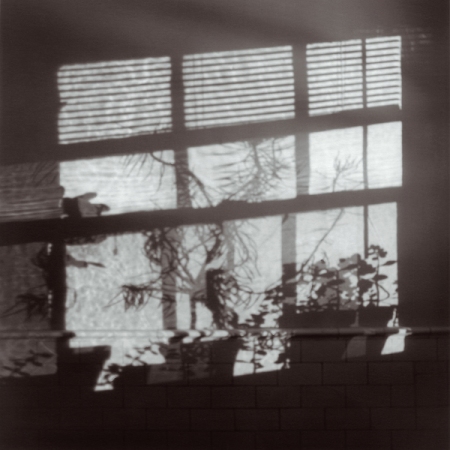Sophomore release of Tri-Angle artist The Haxan Cloak with Excavation.
Excavation has something of a reputation as being recognised as being one of the darkest albums of the year so far, and I am in no position to refute that, but I must admit I find it somewhat strange seeing his name on the Tri-Angle Records label. That’s not to say that Tri-Angle’s other artists dont tinker with the darker sides of music either, Balam Acab for example had considerable moody undercurrents in Wonder/Wander, but The Haxan Cloak is in a league of his own.
Opener “Consumed” arrives on a bed of deep sub-bass, a feature we are about to become rather familiar with in this 50 minute journey through darkness. Suddenly it bursts open to a rush of squealing electronica and pounding bass beats before slipping away into the abyss; a short and sharp introduction that makes it perfectly clear we are in for an interesting and probably scary experience. The two-part title track arrives to low-key, repetitive dub beats, slowly growing in textural complexity and volume as we dig deeper and deeper into the core of the album. Distal chanting sets an even more eerie atmosphere through the first part whilst the second sets your teeth on edge with fractured noise punctuating the heavy basslines alongside even creepier xylophonic tinkles and piercing drone notes.
The album’s interior continues to increase the sensation of claustrophobia and oppression with “Mara” with thin guitar wails supplementing the pulses of thick bass that shake and rattle the black emptiness stretching out in front of us but never able to fill it. Whilst the bass revvs and rumbles at substantial volume it’s just never quite able to saturate the void the sub-bass seems to generate. And that is Excavation‘s secret; as the deep bass smothers our vision our minds jump to fill the gaps, but there is of course that portion that we can’t account for, that portion that remains unknown that seeps through. That’s the fear factor when it comes to darkness, the not knowing and the assumptions that follow.
Whilst much of the album labours under a barely restrained panic, a carefully measured level of claustrophobia, part two of “The Mirror Reflecting” sets a much quicker pace than the rest, at least at first. The synth fiddles remind me of some dusty Aphex Twin piece before the bass kicks slow the heartbeat down after about 3 minutes, but by that time the thin violin strings appear and the Witch House fractured synths come with them. There’s an element of musicality here that isn’t present in much of the record and I enjoy it a lot; it’s probably the best balanced and most interesting piece in that it still maintains that strained atmosphere but manages to make something interesting out of it.
This change of heart actually continues into penultimate track “Dieu” as the Dub and Glitch overtones come through again; clipped vocal snippets, percussive taps and shimmies and oscillating processed guitar blats create a sparse and unforgiving yet intoxicating soundscape. It’s 5 minutes in length and somehow, just like every track on this album, it feels like it takes years to complete. It draws you in close and blankets you, waiting until it’s done before it spits you back out. Finally we approach the 13 minute finalé ironically called “The Drop”; after an initial burst of light through the first half with shimmering, repetitive synth riffs we are slowly segued back into darkness, ushered away from the prospect of hope with violin and noise. The album’s early concepts are being repeated again, slowly taking us away from the light and burying our senses in the blackness.
I don’t know what to say, Excavation is exactly as cold and as bleak as everyone has said, but hopelessness and melancholy do not necessarily a good album make. It has its good moments, but usually those are not when the album is encasing itself in a shield of basslines; instead it’s where Bobby actually takes the time to set out a few simple rhythms and create a sense of unease through it, where the Dub is given an opportunity to create something inherently more compelling. It’s dark, sure, but I get the feeling something more important was compromised just to make it happen.



You must be logged in to post a comment.